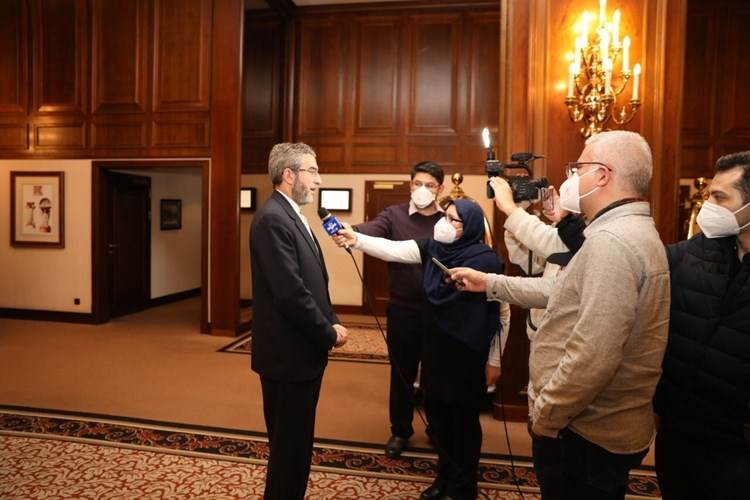Iran Seeks to Lift Sanctions Amid Vienna Negotiations
The nuclear negotiations aimed at reviving the Nuclear agreement are resuming today between Iran and the major powers, with the former insisting on lifting all sanctions.
-

Iran's chief negotiator Ali Bagheri Kani told the media (AFP).
The seventh round of negotiations for reviving the Iran nuclear deal will resume in the Austrian capital Vienna today.
Before the beginning of the new round of negotiations, Russia's permanent representative to international organizations confirmed that the chances of reaching an agreement still exist, explaining that an "informal trilateral meeting" was held yesterday between the representatives of Iran, Russia, and China in the Austrian capital.
The major powers and Iran are meeting in Vienna today in an attempt to save the 2015 nuclear agreement, but hopes for a breakthrough seem slim as Tehran sticks to its demand of lifting the embargo on Iran.
US diplomats say that time is running out for efforts to revive the agreement, which former US President Donald Trump withdrew from in 2018, angering Iran and frightening the other major countries concerned, namely Britain, China, France, Germany, and Russia.
It is worth noting that six rounds of indirect talks were held between last April and June.
Iran's demands
The new Iranian negotiating team has set out demands that US and European diplomats see as "unrealistic."
The Iranians insist on dropping all sanctions imposed by the United States and the European Union since 2017, including those not related to its nuclear program.
The Director-General of the International Atomic Energy Agency, Rafael Mariano Grossi, visited Tehran a few days ago, prior to the meeting of the IAEA's Board of Governors, to discuss the nuclear energy file in Iran, which the two sides expressed as "constructive."
For its part, the US special envoy for Iran, Robert Malley, announced in an interview broadcast on Saturday that the United States and its partners are likely to put pressure on Iran if it uses the talks that resume in Vienna today as a pretext to accelerate its nuclear program.
Iran's chief nuclear negotiator, Ali Bagheri Kani, said in a column in the Financial Times on Sunday: "To ensure that any future agreement is tough, the West needs to pay a price for having failed to uphold its part of the bargain. As in any business, a deal is a deal, and breaking it has consequences."
He added that to secure the "rights and interests" of Iran, the negotiating team will base its discussions on the principles of "guarantee" and "verification".
As for the threat of sanctions, Baghi Kani said: "Iran did not succumb to the use of either military threats, economic sanctions or 'maximum pressure' under Trump and it will not do so under Biden."

 3 Min Read
3 Min Read








